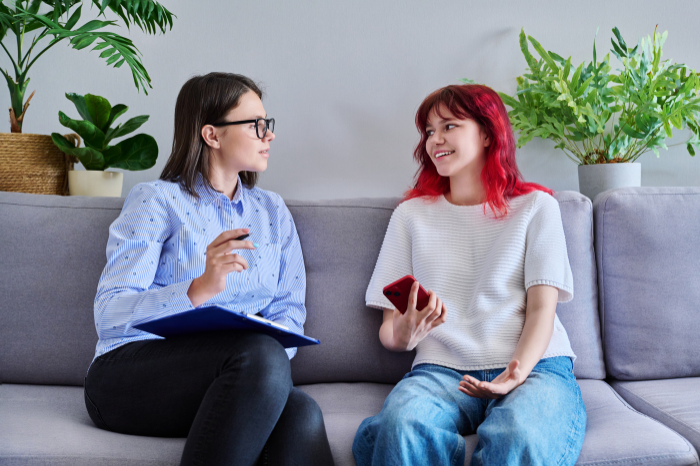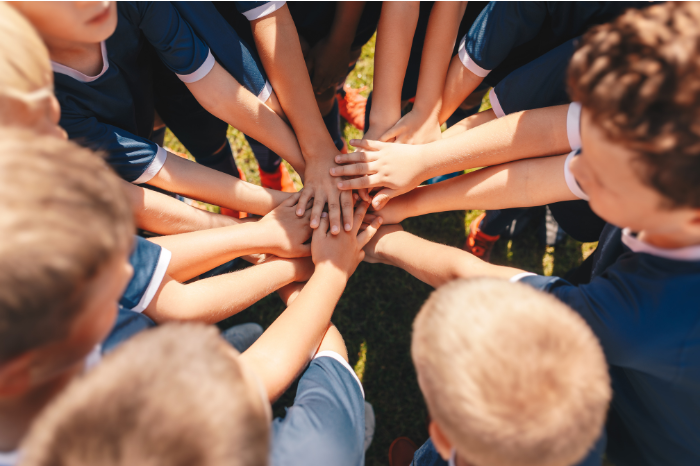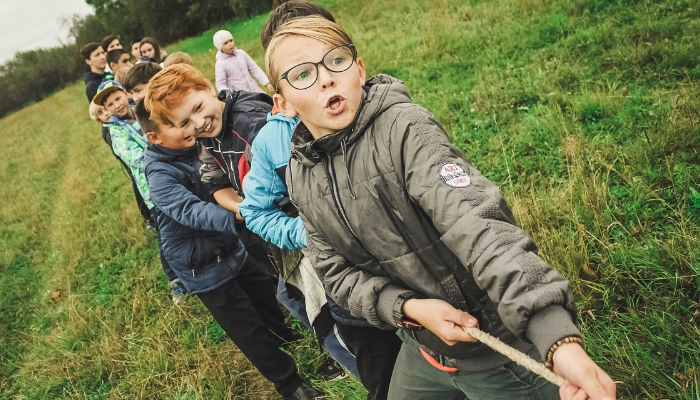
Psychosocial disability can see people trapped in patterns and cycles that are difficult to break and which prevent them from moving forward in life. This is where a recovery coach – a relatively new mental health-focused support in the National Disability Insurance Scheme (NDIS) – may be able to help.
As NDIS-funded workers who have mental health knowledge, recovery coaches support people to take more control of their lives and better manage the complex challenges of day-to-day living. They work collaboratively with participants, families, carers and other services to design, plan and implement a recovery plan, and assist with the coordination of NDIS and other supports.
Depending on your preferences, you can choose to work with a recovery coach who works from a lived experience perspective, or one who works from learned knowledge alone.
Danni Bament is a recovery coach and Managing Director of Aspire Recovery Connection – or ARC – where she has supported people to move out of homelessness and into a safe, stable home, try new activities, and re-enter the workforce.
Danni – who draws on expertise gained through professional training, as well as her lived experience of recovering from mental health challenges – talked to us about recovery coaching.
What is recovery coaching?
First, let’s look at the term ‘recovery’. This is an approach to healing from psychological and emotional pain born out of the ‘lived experience movement’ – an alternative to a medical approach to mental health, where the focus is on diagnosis and treatment. Recovery-oriented approaches to mental health have a more wholistic focus and incorporate all areas of a person’s life – including emotional, physical, spiritual, and social aspects.
Each person’s journey of recovery is unique, but for all of us it involves a process of healing from emotional and psychological pain and moving towards things that we want in our life that give us hope and meaning.
Recovery coaching is a process of engaging with a person to help them unpack and explore what they want their recovery journey to involve, and then walking alongside them as they take steps towards this.
What’s at the core of recovery coaching?
The most critical element of recovery coaching is relationship building. The process of personal recovery and healing from emotional and psychological pain is deeply rewarding, but also challenging and, at times, overwhelming. A strong and trusting relationship between a person and their recovery coach – where both people feel safe to be open and vulnerable – is essential for it to be successful.
Who provides recovery coaching – and what skills and qualifications do they need to have?
There are two types of recovery coaches in the NDIS – those who are in identified ‘lived experience’ roles and those who are not.
Lived experience recovery coaches draw on both their professional training and experience, as well as their own personal experience of living with significant psychological and emotional distress and undertaking a journey of recovery. This may be direct personal experience, or experience as a carer of someone living with mental health challenges.
At ARC, we are a 100 per cent lived experience organisation and our recovery coaches work from their own personal lived experience of mental health challenges and their journey of healing. By drawing on our own experience, we offer a compassionate, non-judgemental approach that seeks to understand and learn from each other in a mutually beneficial relationship that is focused on meaningful connection, rather than ‘helping’ or ‘fixing’.
Also, the NDIS recommends that recovery coaches have a Certificate IV in Mental Health or Mental Health Peer Work or equivalent.
Lived experience recovery coaches draw on both their professional training and experience, as well as their own personal experience of living with significant psychological and emotional distress and undertaking a journey of recovery.
Who can benefit from recovery coaching?
People who have been approved for the NDIS based on a psychosocial disability can request funding for a recovery coach. The benefits of a recovery coach include having someone by your side who understands what it’s like to live with psychological and emotional pain, to help you explore and navigate your own recovery journey. Recovery coaching is about offering compassion and hope, to help you find compassion for yourself and hope for your own recovery, in whatever way is meaningful to you.
What are some of the benefits you have seen people receive – and what goals have you seen people reach?
At ARC, we know the most important first step is to build a trusting, compassionate and meaningful relationship between a person and their recovery coach. With this foundation in place, it is possible to work together towards a person’s goals and aspirations. Once trust and rapport are established, there is room to explore what goals are important to a person, and the steps they could take towards them, and then work towards overcoming barriers that might be in the way.
I’ve been so privileged to see people achieve some truly amazing goals since doing this work. Many people have moved out of a cycle of homelessness into a safe and stable home, others have tried new activities they have been wanting to do for years, and some have gone back to volunteering, study, or paid work. Most importantly though, I’ve seen countless people find meaning in their lives, compassion for the things they have struggled with and a renewed belief in their ability to heal and move towards the lives they want.
What are the benefits of accessing a lived experience practitioner?
The community of people we support at ARC often comment that we are different from other services they have experienced and tell us that they feel ‘seen and heard’ by their ARC recovery coaches and peer mentors. This quite simply is the benefit of accessing support from someone who is working purposefully from their own lived experience and intentionally sharing this for the benefit of the other person. People feel seen and heard because both the practitioner and the recipient have shared experiences of psychological and emotional pain.
How do you access recovery coaching?
If you don’t have recovery coaching in your NDIS plan, but the NDIS has recognised you have a psychosocial disability, you can request for your Local Area Coordinator (LAC) or the NDIS to include funding for a recovery coach in your plan.
If you have funding in your plan for support coordination and the NDIS has recognised that you have a psychosocial disability, you may be able to use this funding flexibly for a recovery coach. It depends how this funding has been stipulated, but you can check with your plan manager, the NDIS or your LAC if you’re not sure.
How can someone access a lived experience recovery coach specifically?
If you are wanting to work with a lived experience recovery coach, it is important that you ask prospective recovery coaches if they are a lived experience practitioner or peer worker, which means the same thing. You may want to also ask the approach they use to draw on their personal lived experience to support your journey of recovery. It is not just about having a lived experience, it’s also about having the skills and training to draw on this experience to support others.
How does recovery coaching differ from support coordination?
Both recovery coaching and support coordination are there to help you to coordinate your NDIS services, get your NDIS plan working for you, and build your knowledge of the NDIS. Recovery coaches have the additional focus of exploring with you the things that will support your psychological and emotional wellbeing and taking steps together towards your recovery. This can include helping you to access NDIS services, as well as mental health and other community services and opportunities.
In my experience, people who have been recognised as having a psychosocial disability get more hours for recovery coaching than for support coordination in their plan. I understand this is because the NDIS recognises recovery-oriented practice requires time to invest in building a relationship for people to take steps towards their goals.
On a practical level, recovery coaches can also support participants to attend appointments and access opportunities in the community.
What is your favourite thing about your role as a recovery coach?
My favourite thing about my role as a recovery coach is what I learn from the people I have the privilege of serving. The people who choose to work with us as their recovery coaches have taught me so much about myself and contributed immensely towards my own ongoing journey of recovery. They show me patience, courage, and such incredible compassion for others, even when they themselves are suffering.
What challenges have you faced in your role?
Sometimes it can be challenging navigating the NDIS application process, where people are required to highlight their deficits and the challenges they face in daily life to get the support they need. Recovery-based practice is about focusing on each other’s strengths and offering hope for a future that holds meaning and fulfilment. The application and reassessment process can be quite distressing and risk people experiencing a setback in their recovery journey, and this is something we work to overcome.
What have been among the highlights of your time as a recovery coach?
Seeing the compassion that people who have suffered, and who continue to suffer, terrible injustices offer to others. It constantly blows me away the kindness and generosity people can offer to others when they are going through such a difficult time themselves.
If you have a psychosocial disability and want to find out more about how a lived experience recovery coach may be able to help you, contact Aspire Recovery Connection.


